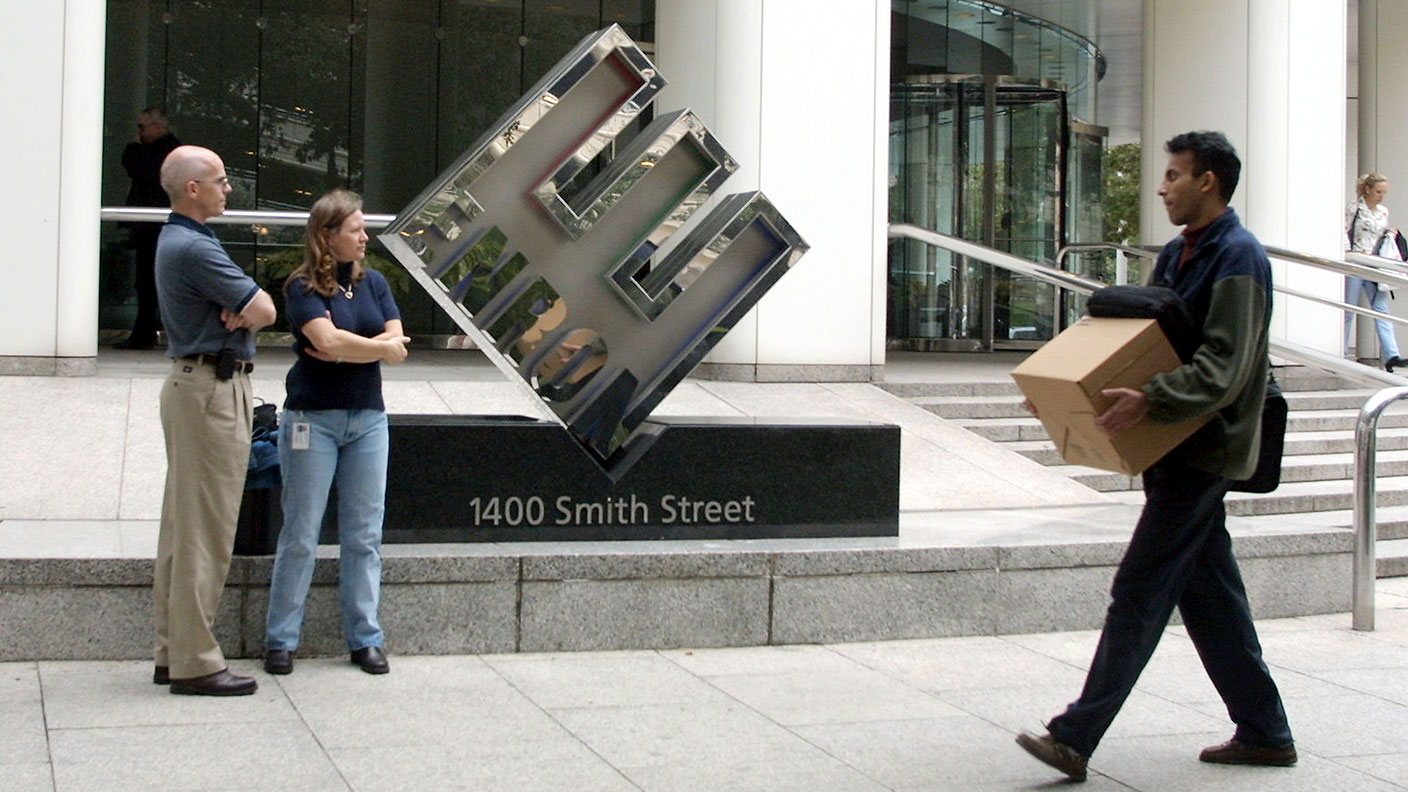2 December 2001: Enron files for bankruptcy
US energy giant Enron became that country’s biggest corporate bankruptcy on this day in 2001, after America’s financial watchdog had uncovered huge fraud.


Get the latest financial news, insights and expert analysis from our award-winning MoneyWeek team, to help you understand what really matters when it comes to your finances.
You are now subscribed
Your newsletter sign-up was successful
Want to add more newsletters?

Twice daily
MoneyWeek
Get the latest financial news, insights and expert analysis from our award-winning MoneyWeek team, to help you understand what really matters when it comes to your finances.

Four times a week
Look After My Bills
Sign up to our free money-saving newsletter, filled with the latest news and expert advice to help you find the best tips and deals for managing your bills. Start saving today!
Trawling through company balance sheets is probably not your idea of fun. But as regular MoneyWeek readers know, it pays to get your hands dirty. That's the moral of the story of one of the biggest corporate bankruptcies in American history.
At the turn of the century, energy trader Enron was America's seventh biggest company, reporting revenues of $111bn. But all was not as it seemed – because hidden in the accounts lay colossal debts of $16bn.
America's financial watchdog, the Securities and Exchange Commission, smelled a rat. And rightly. Is investigations uncovered massive fraud: Enron was hiding its debts and losses in subsidiaries that made its earnings appear more impressive than they really were.
MoneyWeek
Subscribe to MoneyWeek today and get your first six magazine issues absolutely FREE

Sign up to Money Morning
Don't miss the latest investment and personal finances news, market analysis, plus money-saving tips with our free twice-daily newsletter
Don't miss the latest investment and personal finances news, market analysis, plus money-saving tips with our free twice-daily newsletter
When investors got wind of this, they understandably fled for the hills. And in a little over a year, the share price fell by over 99% from a high of $90 in August 2000. That scuppered a planned takeover deal with rival firm Dynergy. Both companies pointed the finger at each other, and Enron sued for $10bn in damages.
Dynergy claimed that the investigations gave it a legitimate excuse to pull out, while Enron accused its rival of sabotaging a potential lifeline in order to get its hands on a lucrative oil pipeline that stood to be forfeited.
On 2 December 2001, Enron filed for Chapter 11 bankruptcy, which under US law grants a company protection from its creditors while it attempts to restructure itself much like going into administration in the UK. It was the biggest corporate bankruptcy at the time (although dwarfed by the collapse of Lehman Brothers just seven years later).
Enron's CEOs, Kenneth Lay and Jeffrey K Skilling, ended up in the dock, charged with fraud and insider trading. Skilling in particular was accused of dumping millions of dollars' worth of shares before the company's collapse became widely known. Thousands of employees lost their pensions in the fallout.
Get the latest financial news, insights and expert analysis from our award-winning MoneyWeek team, to help you understand what really matters when it comes to your finances.

-
 Should you buy an active ETF?
Should you buy an active ETF?ETFs are often mischaracterised as passive products, but they can be a convenient way to add active management to your portfolio
-
 Power up your pension before 5 April – easy ways to save before the tax year end
Power up your pension before 5 April – easy ways to save before the tax year endWith the end of the tax year looming, pension savers currently have a window to review and maximise what’s going into their retirement funds – we look at how
-
 31 August 1957: the Federation of Malaya declares independence from the UK
31 August 1957: the Federation of Malaya declares independence from the UKFeatures On this day in 1957, after ten years of preparation, the Federation of Malaya became an independent nation.
-
 13 April 1960: the first satellite navigation system is launched
13 April 1960: the first satellite navigation system is launchedFeatures On this day in 1960, Nasa sent the Transit 1B satellite into orbit to provide positioning for the US Navy’s fleet of Polaris ballistic missile submarines.
-
 9 April 1838: National Gallery opens in Trafalgar Square
9 April 1838: National Gallery opens in Trafalgar SquareFeatures On this day in 1838, William Wilkins’ new National Gallery building in Trafalgar Square opened to the public.
-
3 March 1962: British Antarctic Territory is created
Features On this day in 1962, Britain formed the British Antarctic Territory administered from the Falkland Islands.
-
10 March 2000: the dotcom bubble peaks
Features Tech mania fanned by the dawning of the internet age inflated the dotcom bubble to maximum extent, on this day in 2000.
-
9 March 1776: Adam Smith publishes 'The Wealth of Nations'
Features On this day in 1776, Adam Smith, the “father of modern economics”, published his hugely influential book The Wealth of Nations.
-
 8 March 1817: the New York Stock Exchange is formed
8 March 1817: the New York Stock Exchange is formedFeatures On this day in 1817, a group of brokers moved out of a New York coffee house to form what would become the biggest stock exchange in the world.
-
7 March 1969: Queen Elizabeth II officially opens the Victoria Line
Features On this day in 1969, Queen Elizabeth II took only her second trip on the tube to officially open the underground’s newest line – the Victoria Line.